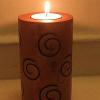
Search the Community
Showing results for tags 'CNY'.
-

Alone During Chinese New Year Holiday? Where To Go? What To Do? (Compiled)
Guest posted a topic in Blowing Wind Main Forum
like advise on what are good things to do during this CNY holiday Gay Sauna Checked with Diamond, they are close on new year eve and new year day-1. Shogun - Seems to be open VClub - No posting on their web Not sure any sauna got celebration. Home based Massage Anyone know any of the masseurs are operating during these holiday time. -
Happy CNY 2016 in advance from the mods! Enjoy the festive banner courtesy of @shyc =================================================================== Chinatown lights up for Chinese New Year More than 2,600 handcrafted lanterns now dot the streets in Chinatown, after a lighting-up ceremony to usher in almost two months of Chinese New Year festivities in the area. SINGAPORE: There are now more than 2,600 handcrafted lanterns lighting up the streets in Chinatown, after a lighting-up ceremony on Saturday (Jan 16) kicked off almost two months of Chinese New Year festivities in the area. President Dr Tony Tan Keng Yam was also present. With lanterns in all shapes and sizes, Chinatown has now been transformed into a garden complete with acrobatics, musical performances and light displays. During the ceremony, local and foreign troupes acted out the popular Chinese folktale Journey to the West, entertaining guests. What Chinese zodiac sign are you? The Shēngxiào literally means birth likeness and is also known in English as the Chinese zodiac. The zodiac sign is based on the year you were born. Find your birth year and this is your zodiac star sign. However if you were born before Chinese New Year, your star sign will be for the one for the year before. See below for the meanings. Rat - 1900, 1912, 1924, 1936, 1948, 1960, 1972, 1984, 1996, 2008, 2020. Ox - 1901, 1913, 1925, 1937, 1949, 1961, 1973, 1985, 1997, 2009, 2021. Tiger - 1902, 1914, 1926, 1938, 1950, 1962, 1974, 1986, 1998, 2010, 2022. Rabbit - 1903, 1915, 1927, 1939, 1951, 1963, 1975, 1987, 1999, 2011, 2023. Dragon - 1904, 1916, 1928, 1940, 1952, 1964, 1976, 1988, 2000, 2012, 2024. Snake - 1905, 1917, 1929, 1941, 1953, 1965, 1977, 1989, 2001, 2013, 2025. Horse - 1906, 1918, 1930, 1942, 1954, 1966, 1978, 1990, 2002, 2014, 2026. Sheep - 1907, 1919, 1931, 1943, 1955, 1967, 1979, 1991, 2003, 2015, 2027. Monkey - 1908, 1920, 1932, 1944, 1956, 1968, 1980, 1992, 2004, 2016, 2028. Rooster - 1909, 1921, 1933, 1945, 1957, 1969, 1981, 1993, 2005, 2017, 2029. Dog - 1910, 1922, 1934, 1946, 1958, 1970, 1982, 1994, 2006, 2018, 2030. Boar - 1911, 1923, 1935, 1947, 1959, 1971, 1983, 1995, 2007, 2019, 2031. What does your Chinese zodiac sign mean? In Chinese astrology, there are 12 animal zodiac signs and each have unique characteristics. Rat - Intelligent, adaptable, quick-witted, charming, artistic, sociable. Ox - Loyal, reliable, thorough, strong, reasonable, steady, determined. Tiger - Enthusiastic, courageous, ambitious, leadership, confidence, charismatic. Rabbit - Trustworthy, empathic, modest, diplomatic, sincere, sociable, caretakers. Dragon - Lucky, flexible, eccentric, imaginative, artistic, spiritual, charismatic. Snake - Philosophical, organized, intelligent, intuitive, elegant, attentive, decisive. Horse - Adaptable, loyal, courageous, ambitious, intelligent, adventurous, strong. Sheep - Tasteful, crafty, warm, elegant, charming, intuitive, sensitive, calm. Monkey - Quick-witted, charming, lucky, adaptable, bright, versatile, lively, smart. Rooster - Honest, energetic, intelligent, flamboyant, flexible, diverse, confident. Dog - Loyal, sociable, courageous, diligent, steady, lively, adaptable, smart. Boar - Honorable, philanthropic, determined, optimistic, sincere, sociable.
-
-
-
I take this opportunity to wish each and everyone in this Forum a Happy and Prosperous New Year ahead. Last year was not a very good year for many people; hopefully this year it will be much much better all around. GONG XI FA CAI Yas 1950 aka Eddy
-
Gay Chinese men and women face intense family pressure at Lunar New Year. Agence France-Presse/Getty Images The Lunar New Year holiday can be stressful for single young Chinese men and women as family, relatives and friends ask the inevitable question: When will you get married? For gay men and women the pressure can be even more intense. Though awareness and tolerance of homosexuality is slowly on the rise, in rural towns and villages the topic is rarely discussed. For many Chinese parents today, discovering that their son or daughter is homosexual is seen as a blow that could affect the family’s standing in the community. It’s also seen as reducing the chances the parents will have grandchildren, given that many families only have one child due to restrictive government family-planning policies. To help more Chinese gay men and women as well as their families get through what can be an emotionally charged holiday, PFLAG China has made a close to seven-minute video that recounts–movie-style—the story of one gay man’s coming out against the backdrop of the Lunar New Year holiday. The short video shows how the man is rejected by his mother and father after he tells them he is gay. Years later, the parents relent and the mother calls her son and asks him to come home; the title of the film “Huijia” means “coming home.” “Son, come back. No matter who you are, you’re always our son,” the mother says. PFLAG China was set up in 2008 and is modeled on the U.S advocacy group whose acronym stands for Parents, Families and Friends of Lesbians and Gays. The video had received more than 108 million clicks on the website qq.com as of Thursday noon time in China. PFLAG China cofounder, Hu Zhijun, who also goes by the name Ah Qiang, told China Real Time that he hopes the video will help young people deal with pressure especially from parents. People like Frank, a Shanghai resident in his early thirties who is originally from Jiangsu province and who asked to be identified only by his English name. Frank told his parents about his sexual orientation more than a decade ago. But, Frank said, that didn’t stop his father from giving him an ultimatum last year: get married within a year or don’t visit home ever again. Frank did return to his hometown this year. He has allayed his parents’ fears by telling them his wedding is imminent. He didn’t tell them he plans to marry a lesbian in a marriage of convenience. In a message to CRT via social media earlier this week, Frank said he was happy to be back home, spending time with his family. “Besides marriage, I can speak to them about anything,” he wrote. PFLAG’s Mr. Hu said the video, which cost around $1,600 to make and was funded from donations solicited online, is also aimed at increasing awareness of homosexuality in the broader Chinese society. “Some people are still against it,” he said. Some Chinese, he said, think lesbian, gay, bisexual and transgender “people are not normal and should seek treatment. They think it’s just a lifestyle that people can choose to change.” If you are going through similar stress during the Chinese New Year period, please consider talking to us at Oogachaga. http://www.oogachaga.com/congregaytion/website/care
-
- 14 replies
-
- CNY
- Colourful Chinatown
-
(and 1 more)
Tagged with:
-
Haha! Just An Advance Happy CNY TO Everyone, Have a Nice Reunion Dinner with your Families, Relatives and Friends. Maybe You could decide whether you want to Open Up Your Mind during that day and Tell your close Mates that you are AJ HAPPY NEW YEAR!!! 恭喜发财吉祥如意!! Happiness and prosperity, Good fortune according to your wishes!!! For Youngsters like me or Still Single, Collect As Many Angbao as you can 2014 gonna be Alot Different, New Start.
-
Chinese New Year celebrations around the world – in pictures From Beijing to Bangkok, Stockholm to London, communities around the world get ready to celebrate the Chinese New Year and welcome in the year of the snake Trees are decorated with red lanterns ahead of Chinese New Year celebrations at Ditan Park in Beijing. The New Year – the year of the snake – falls on 10 February this year. Ancient Temple Fairs are a highlight of the city's celebrations, lasting for days with parades, acrobats, opera singers and plenty of traditional foods A Chinese actor is dressed as a Qing Dynasty servant during a rehearsal of an ancient Qing Dynasty ceremony for the upcoming Chinese New Year event at Ditan Park in Beijing Shop decorations go up in London's Chinatown as they get ready to celebrate the year of the snake. The city's celebrations will kick off on Sunday 10 February with a procession to Trafalgar Square, with highlights including a concert with performers such as the Chen Brothers Flying Lion Dance and Hong Kong-born singer Emmy The Great, ending with a fireworks display. See chinatownlondon.org/ for details A man browses Chinese Lunar New Year lanterns at a shop in Phnom Penh, Cambodia People handle genetically modified, auspicious, white snakes on the altar at the Temple of White Snakes in Taoyuan county, in north-western Taiwan In Surakarta (Solo) in Central Java, Indonesia, the minority Chinese population mark New Year a week earlier with a celebration called Grebeg Sudiro. Here they present a display of cone-shaped offerings of crops and cakes Women of Dong ethnic group in Kaili, Guizhou province, China, make new clothing made from handmade cloth traditionally worn to welcome in the New Year A calligrapher works on Chinese New Year greetings on Charoen Krung Road in Bangkok's Chinatown. Chinese New Year is not an official public holiday in Thailand, but the festival is a huge celebration for both the city's large Chinese population and those of non Thai-Chinese descent. Festivities in Bangkok will centre on and around Yaowarat Road in the heart of Chinatown, where this year's highlights include a Tibetan performance A young girl views festive lanterns in the build up to the new lunar year in Changsha, China Around 200 Filipino dancers perform a Chinese dragon dance for the upcoming New Year festival in Chinatown, Manila, Philippines. Lucky charms, fortunetellers, symbols, firecrackers, and varieties of reds flood the streets for days before the celebration Workers carry a giant candle to a Buddhist temple in the Indonesian capital city of Jakarta as the Muslim majority country's minority Chinese-Indonesians prepares to celebrate the Chinese Lunar New Year Performers from China's Jiangsu Overseas Chinese Art Group prepare before a gala to celebrate the upcoming Chinese Lunar New Year in Stockholm, Sweden. The city's East Asia Museum will mark the festival with a parade, calligraphy workshops, dragon painting and a concert Source: http://www.guardian....3733843&index=0
-
“人日”亦称“人胜节”、“人庆节”、“人口日”、“人七日”等。传说女蜗初创世,在造出了鸡狗猪牛马等动物后,于第七天造出了人,所以这一天是人类的生日。汉朝开始有人日节俗,魏晋后开始重视。古代人日有戴“人胜”的习俗,人胜是一种头饰,又叫彩胜,华胜,从晋朝开始有剪彩为花、剪彩为人,或镂金箔为人来贴屏风,也戴在头发上。此外还有登高赋诗的习俗。唐代之后,更重视这个节日。每至人日,皇帝赐群臣彩缕人胜,又登高大宴群臣。如果正月初七天气晴朗,则主一年人口平安,出入顺利。 Above from http://baike.baidu.com/view/6472.htm Below from http://en.wikipedia....hinese_New_Year First day The first day is for the welcoming of the deities of the heavens and earth, officially beginning at midnight. Many people, especially Buddhists, abstain from meat consumption on the first day because it is believed that this will ensure longevity for them. Some consider lighting fires and using knives to be bad luck on New Year's Day, so all food to be consumed is cooked the days before. On this day, it is considered bad luck to clean. Most importantly, the first day of Chinese New Year is a time to honor one's elders and families visit the oldest and most senior members of their extended families, usually their parents, grandparents and great-grandparents. For Buddhists, the first day is also the birthday of Maitreya Bodhisattva (better known as the more familiar Budai Luohan), the Buddha-to-be. People also abstain from killing animals. Some families may invite a lion dance troupe as a symbolic ritual to usher in the Chinese New Year as well as to evict bad spirits from the premises. Members of the family who are married also give red envelopes containing cash to junior members of the family, mostly children and teenagers. Business managers also give bonuses through red envelopes to employees for good luck and wealth. While fireworks and firecrackers are traditionally very popular, some regions have banned them due to concerns over fire hazards, which have resulted in increased number of fires around New Years and challenged municipal fire departments' work capacity. For this reason, various city governments (e.g., Hong Kong, and Beijing, for a number of years) issued bans over fireworks and firecrackers in certain premises of the city. As a substitute, large-scale fireworks have been launched by governments in such cities as Hong Kong. Second day Incense is burned at the graves of ancestors as part of the offering and prayer ritual. The second day of the Chinese New Year, known as kāinián (开年, "beginning of the year")[16], was when married daughters visited their birth parents, relatives and close friends. (Traditionally, married daughters didn't have the opportunity to visit their birth families frequently.) It is also the God of Wealth's birthday. During the days of imperial China, "beggars and other unemployed people circulate[d] from family to family, carrying a picture [of the God of Wealth] shouting, "Cai Shen dao!" [The God of Wealth has come!]." Householders would respond with "lucky money" to reward the messengers. Business people of the Cantonese dialect group will hold a 'Hoi Nin' prayer to start their business on the 2nd day of Chinese New Year so they will be blessed with good luck and prosperity in their business for the year. Some believe that the second day is also the birthday of all dogs and remember them with special treats. Third day The third day is known as Chìkǒu (赤口), directly translated as "red mouth". Chìkǒu is also called Chìgǒurì (赤狗日). Chìgǒu means "the God of Blazing Wrath" (熛怒之神). It is generally accepted that it is not a good day to socialize or visit your relatives and friends. Hakka villagers in rural Hong Kong in the 1960s called it the Day of the Poor Devil and believed everyone should stay at home. This is also considered a propitious day to visit the temple of the God of Wealth and have one's future told. Fourth day In those communities that celebrate Chinese New Year for only two or three days, the fourth day is when corporate "spring dinners" kick off and business returns to normal. Fifth day In northern Mainland China, people eat jiǎozi (simplified Chinese: 饺子; traditional Chinese: 餃子), or dumplings on the morning of Pòwǔ (破五). In Taiwan, businesses traditionally re-open on the next day (the sixth day), accompanied by firecrackers. It is also common in China that on the 5th day people will shoot off firecrackers in the attempt to get Guan Yu's attention, thus ensuring his favor and good fortune for the new year.[citation needed] Seventh day The seventh day, traditionally known as Rénrì (人日, the common man's birthday), the day when everyone grows one year older. In some overseas Chinese communities in Southeast Asia, such as Malaysia and Singapore, it is also the day when tossed raw fish salad, yusheng, is eaten for continued wealth and prosperity. For many Chinese Buddhists, this is another day to avoid meat, the seventh day commemorating the birth of Sakra, lord of the devas in Buddhist cosmology who is analogous to the Jade Emperor. Chinese New Year's celebrations, on the eighth day, in the Vancouver suburb of Richmond, British Columbia, Canada. Eighth day Another family dinner is held to celebrate the eve of the birth of the Jade Emperor. However, everybody should be back to work by the eighth day. All government agencies and business will stop celebrating by the eighth day. Store owners will host a lunch/dinner with their employees, thanking their employees for the work they have done for the whole year. Ninth day The ninth day of the New Year is a day for Chinese to offer prayers to the Jade Emperor of Heaven (天公, Tiāngōng) in the Daoist Pantheon. The ninth day is traditionally the birthday of the Jade Emperor. This day is especially important to Hokkiens. Come midnight of the eighth day of the new year, Hokkiens will offer thanks giving prayers to the Emperor of Heaven. Offerings will include sugarcane as it was the sugarcane that had protected the Hokkiens from certain extermination generations ago. Incense, tea, fruit, vegetarian food or roast pig, and gold paper is served as a customary protocol for paying respect to an honored person. Tenth day The Jade Emperor's party is also celebrated on this day. Eleventh through twelfth day Nothing of extreme significance traditionally takes place during the eleventh and twelfth days. Thirteenth day On the 13th day people will eat pure vegetarian food to clean out their stomach due to consuming too much food over the last two weeks. This day is dedicated to the General Guan Yu, also known as the Chinese God of War. Guan Yu was born in the Han dynasty and is considered the greatest general in Chinese history. He represents loyalty, strength, truth, and justice. According to history, he was tricked by the enemy and was beheaded. Almost every organization and business in China will pray to Guan Yu on this day. Before his life ended, Guan Yu had won over one hundred battles and that is a goal that all businesses in China want to accomplish. In a way, people look at him as the God of Wealth or the God of Success. Fifteenth day The fifteenth day of the new year is celebrated as Yuanxiao Festival/Yuánxiāojié (元宵节), aka Shangyuan Festival/Shàngyuánjié (上元节) or the Lantern Festival (otherwise known as Chap Goh Mei Chinese: 十五暝; pinyin: Shíwǔmíng; literally "the fifteen night" in Fujian dialect). Rice dumplings tangyuan (simplified Chinese: 汤圆; traditional Chinese: 湯圓; pinyin: tāngyuán), a sweet glutinous rice ball brewed in a soup, are eaten this day. Candles are lit outside houses as a way to guide wayward spirits home. This day is celebrated as the Lantern Festival, and families walk the street carrying lighted lanterns. In Malaysia and Singapore, this day is celebrated by individuals seeking for a love partner, a different version of Valentine's Day. Normally, single women would write their contact number on mandarin oranges and throw it in a river or a lake while single men would collect them and eat the oranges. The taste is an indication of their possible love: sweet represents a good fate while sour represents a bad fate. This day often marks the end of the Chinese New Year festivities.
-
Very late, need to get Chinese New Year goodies for relative visit. What is best ? Recommend please.








